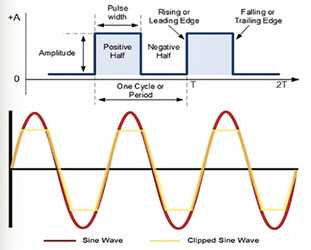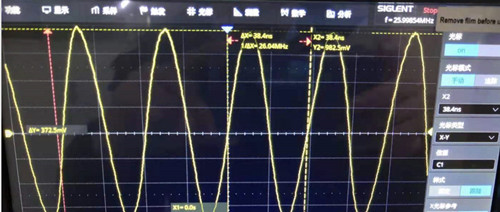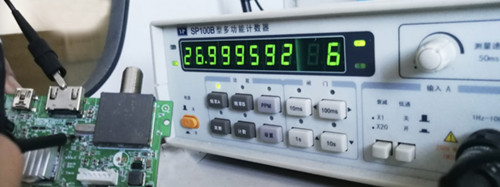
Email: sales@xtalong.com Tel: +86-28-80192520

Email: sales@xtalong.com Tel: +86-28-80192520

The passive crystal oscillator has started to vibrate, it means that there must be a voltage difference between the two pins, the current flowing through will generate excitation power. However the most direct way for us to determine whether the crystal oscillator work by voltage difference, need to use an oscilloscope or a frequency meter to observe whether the crystal oscillator pins (either frequency input pins or frequency output pins) have the correct waveform or frequency signal output.
Under the normal start-up condition of the crystal oscillator, the output waveform of the passive crystal is a neat sine wave (SINE WAVE). Frequency meters tend to be more accurate than oscilloscope measurements. For example,use an oscilloscope to test that the passive crystal oscillator output waveform is a sine wave, and the output frequency is 26.04MHz, as shown in the following:

use the frequency meter to test the passive crystal oscillator, and the measurement result is 26.999592MHz, as shown in the following:

Generally, the active crystal oscillator has only one frequency output pin. When using an oscilloscope or frequency meter to measure this pin, if there is a normal waveform (commonly a square wave, the temperature compensated crystal oscillator has a clipped sine wave output) or a normal frequency signal output, It can be considered that the active crystal oscillator has started to oscillate normally.
The circuit application of the active crystal oscillator is relatively simple. Provide the rated voltage to the voltage input pin of the active crystal oscillator, and then the clock signal can be output. Therefore, if you choose a crystal oscillator product from a regular manufacturer, it is rare that the active crystal oscillator does not vibrate.
If the chip can’t work, it will not be able to capture the correct clock signal that the crystal is feeding it. In this case, we are prone to misjudging the crystal oscillator.